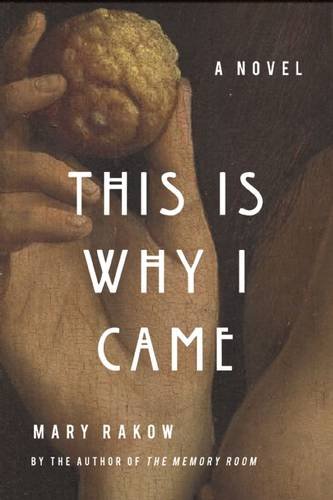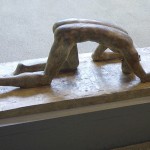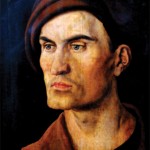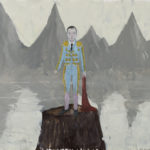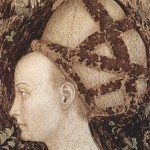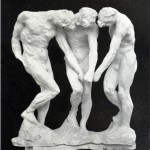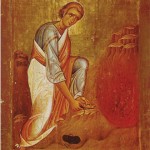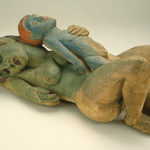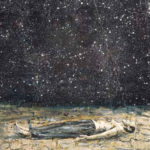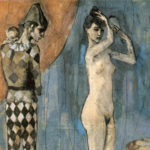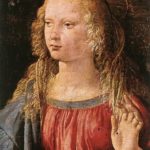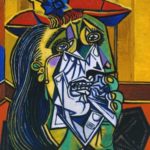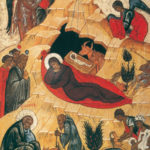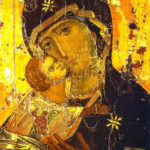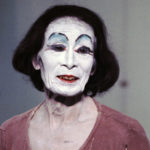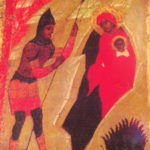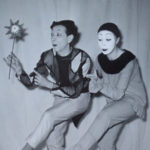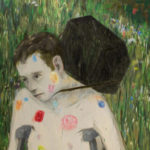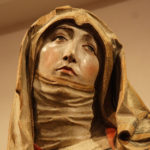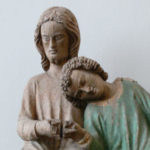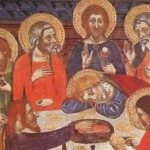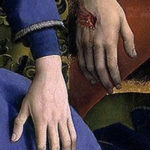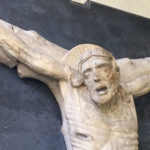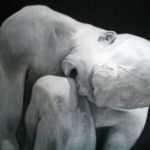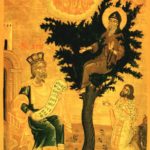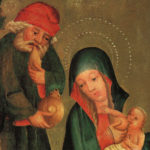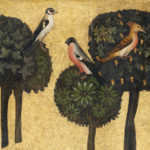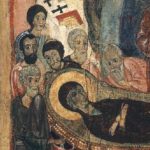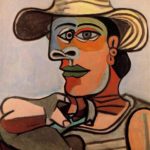Mary lay on a litter surrounded by people she knew and loved, some having come from great distances, Rome, Macedonia and Greece.
She heard them whispering phrases to each other, giving her titles, the words afloat in the air above her bed, “Anchor,” “Mother of Sorrows,” “Our Lady of the Sign.” But she said to herself, “I am a bulrush that grew in the mud. I’m neither Moses nor Pharaoh. I am the wet, muddy reed.” Had she the energy, she might have corrected them, saying, “Call me ‘Mary of the Bulrushes,’ ‘The Woven Cradle,’ ‘Mother of the Grassy Marsh.’”
She’d wondered since she first heard the words, what it meant to be “blessed among women” and had performed an examination since she was young. She’d wanted to say then, “O yes, this is who I am, blessed among women.” But she could not say those words either then or now. As a girl she’d had her childish ways. She’d engaged in small deceptions, had been sarcastic at times and impatient, which she’d worked on with modest success when she first met Joseph. And she’d regularly neglected the sick.
She could hear them starting to pray, heard the sound of bread being set down on a plate, a cup being filled with wine. They were gathering around her table, the sound of their feet on the floor, slow motion, bodies adjusting to her small space, fabric touching fabric, that hush, a cough, the words murmured quietly in unison, words of consecration and remembrance, and she hungered with a heated, impatient desire to see her son again face to face. She knew that it was the magnitude of God’s intention in his son, through her, that made her unlike other women, made her graced condition so full and nothing else.
When they were finished, and the silence that followed also reached its end, she heard more titles, “She Who Shows the Way,” “Throne of Wisdom.” She turned her head toward the window. The words now seemed to come from outside, from beyond her room, from beyond the tree and garden wall. She didn’t understand all of them. “Mother of the Poor,” “Joy of the Just,” “Our Lady of Lebanon,” and then from across the sea, “Our Lady of Mt. Carmel,” “Notre Dame.” In the high mountains, “Ark of the Covenant,” “Tower of David,” “Queen of Peace.”
She felt as she had when she was fifteen and Joseph a year older and the machinery working through their lives had no precedent. They will make their own versions of me, putting themselves here, she realized, it is happening already. She again felt that she should surrender. She didn’t hear, “Mother of the Bulrushes” and “Mary of Wet Feet,” she heard, “Theotokos” and “Mother of God.”
She should surrender so others could make of her life what they needed to make. Hadn’t the bulrushes consented to not only preserve Moses but also to be home to tadpoles and small fishes, while to the egrets and plovers, a hunting ground?
They were coming back to her bed now, some weeping, some touching her feet through the blanket. She saw that she would be both glorious and, to others, to most, nameless.
The candles were burning.
Where is the holy?
She saw the future as if it were already past and watched as a woman took two palm fronds and folded them to make a cross. It was Palm Sunday. Leaving Church, she took the cross home and fastened it to a plaster figure she called “The Blessed Virgin” that stood in the corner of her front yard. Chain-link fence, pick-up trucks, the statue in a blue robe. Over the statue, the woman had propped an umbrella for protection against rain and to the scalloped edge of the umbrella she’d attached a string of Christmas lights.
Easter and Christmas, umbrellas and folded palms and blood and trucks and water and cement and plaster and grass and chain link all assembled into a web of meaning, into a world. Lawn chairs, a planter made of stacked rubber tires, a watch dog, a torn couch, all of it a hymn.
Holding fast to the particular, Mary thought, as energy seeped from her body, this great hymn of the ordinary is what God needs. This is what he has always needed. And with that, angels and seraphim with six wings, she projected forward and stepped out of time.

